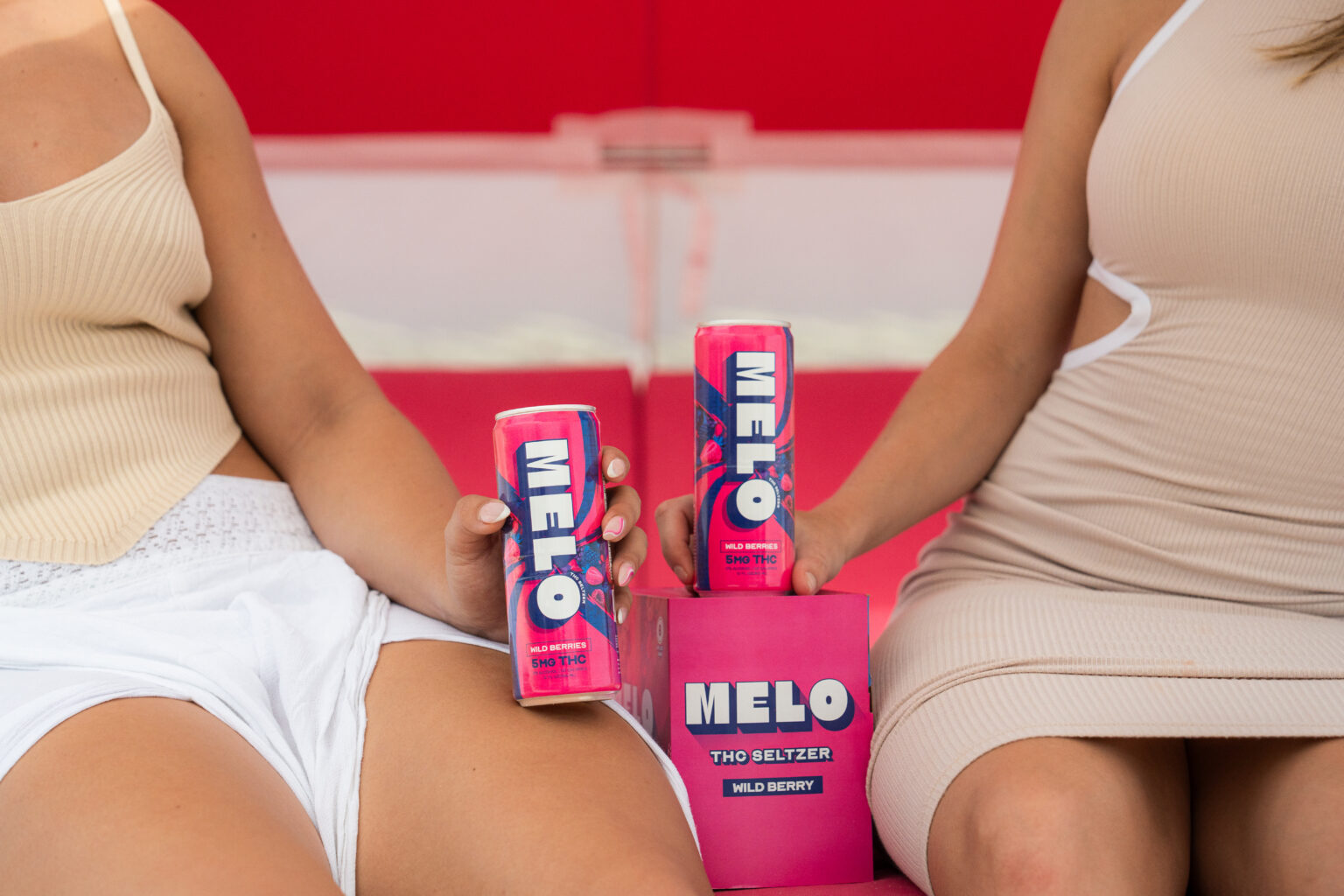Potential for Overconsumption
The increasing popularity of THC-infused beverages presents both excitement and concern. While these products offer a novel way to consume cannabis, their potential for overconsumption raises significant safety issues.
Rapid Absorption

One major concern with THC beverages is the potential for rapid absorption. Unlike smoking or vaping where effects are felt almost immediately, the THC in drinks is absorbed through the digestive system. This process takes longer, leading to a delayed onset of effects that can be misconstrued. Consumers may unknowingly consume more than intended while waiting for the initial impact, increasing the risk of overconsumption and unpleasant or even dangerous side effects.
Delayed Onset of Effects
This delayed onset can create a false sense of security, as individuals may not immediately feel the psychoactive effects of THC. As a result, they might continue consuming more, exceeding the recommended dosage without realizing it. This delayed reaction can lead to a much higher blood alcohol content (BAC) than anticipated, increasing the likelihood of experiencing negative side effects such as anxiety, paranoia, dizziness, and nausea.
Difficulty in Measuring Dosage
A further challenge lies in the difficulty of accurately measuring dosage in THC beverages. Unlike traditional cannabis products where doses are often clearly labeled by weight or volume, the potency of THC beverages can vary significantly between brands and even within a single product line. This inconsistency makes it difficult for consumers to gauge their intake accurately.
Factors such as serving size, the type of drink, and individual metabolism all play a role in how THC is absorbed and its effects. Without standardized labeling and clear guidelines on dosage, consumers are left to rely on estimates or guesswork, increasing the risk of accidental overconsumption.
Unpredictable Potency and Quality Control
The growing market for THC-infused beverages presents a unique set of safety concerns due to unpredictable potency and inconsistent quality control. Unlike traditional cannabis products, the delayed onset of effects from ingesting THC can lead to unintentional overconsumption.
Variations in THC Concentration
Variations in THC concentration pose a significant challenge in ensuring consumer safety. Unlike edibles where dosage is often standardized based on weight or volume, THC beverages can have widely fluctuating potency levels. This unpredictability stems from several factors, including variations in extraction methods, the type of cannabis used, and the manufacturing process itself.
Without rigorous quality control measures, consumers may unknowingly consume significantly different amounts of THC from one beverage to another, even within the same brand. This lack of consistency makes it difficult for individuals to accurately gauge their intake and manage their desired effects.
Lack of Standardized Manufacturing Practices
A significant concern is the unpredictable potency of THC beverages. Unlike edibles, where dosage is often standardized based on weight or volume, THC in drinks can vary greatly between brands and even within a single product line. This inconsistency stems from several factors, including variations in extraction methods, the type of cannabis used, and the manufacturing process itself.

This lack of standardization makes it difficult for consumers to know exactly how much THC they are consuming. Without clear labeling and reliable quality control, individuals may unknowingly ingest significantly different amounts with each beverage, increasing the risk of overconsumption and its associated side effects.
Contamination Risks
The unpredictability of THC potency in beverages poses a significant safety risk. Unlike traditional cannabis products where dosage is often standardized, THC beverages can have widely varying concentrations. This inconsistency is due to factors such as differences in extraction methods, the type of cannabis used, and variations in manufacturing processes.
Lack of robust quality control measures contributes to this issue. Without consistent testing and standardization, consumers may unknowingly consume vastly different amounts of THC from one beverage to another, even within the same brand. This unpredictability makes it difficult for individuals to manage their desired effects and increases the likelihood of accidental overconsumption.
Furthermore, contamination risks are a serious concern in the production of THC beverages. Cross-contamination with other substances during manufacturing or improper storage can lead to the presence of unwanted chemicals, bacteria, or mold. These contaminants can have adverse health effects on consumers, especially when ingested.
Health Effects and Interactions
The rising popularity of THC-infused beverages brings both excitement and safety concerns. While offering a novel way to consume cannabis, their potential for overconsumption is a major issue.
Short-Term Side Effects (Anxiety, Nausea, Dizziness)
One common concern surrounding THC beverages is the potential for experiencing short-term side effects. These side effects often stem from consuming more than intended due to the delayed onset of psychoactive effects.
- Anxiety
- Nausea
- Dizziness
Long-Term Health Impacts (Potential Cognitive Impairment, Respiratory Issues)
Long-term health impacts associated with THC beverage consumption are not yet fully understood due to the relatively recent surge in their popularity. However, some potential concerns exist based on research regarding THC’s effects in general.
One area of concern is potential cognitive impairment. Studies have shown that chronic cannabis use, including THC consumption, may be linked to impairments in memory, attention, and executive function, particularly in individuals who begin using during adolescence when the brain is still developing.
Another potential long-term health issue is respiratory problems. While not directly related to ingesting THC, frequent cannabis smoking or vaping can irritate the lungs and contribute to respiratory conditions such as bronchitis and chronic cough. It’s important to note that these risks are associated with inhaled cannabis products, not THC beverages.
Interactions with Medications and Preexisting Conditions
THC beverages can interact with certain medications, potentially leading to adverse effects. For example, THC may enhance the sedative effects of benzodiazepines or opioids, increasing the risk of respiratory depression. Interactions with antidepressants and blood thinners are also possible, highlighting the need for caution when combining THC beverages with any prescription drugs.
Individuals with pre-existing health conditions should be particularly cautious about consuming THC beverages. People with cardiovascular disease may experience an increase in heart rate or blood pressure. Those with anxiety disorders could experience heightened anxiety or panic attacks. Individuals with respiratory issues may find their symptoms exacerbated. It’s crucial for individuals with any health concerns to consult with a healthcare professional before using THC beverages to assess potential risks and interactions.
Legal and Regulatory Challenges
The increasing popularity of THC-infused beverages presents both exciting possibilities and significant safety challenges. While these products offer a novel way to consume cannabis, their unique properties raise important concerns regarding dosage accuracy, potential for overconsumption, and the need for stringent quality control measures.
Varying State Laws and Regulations
One major legal and regulatory challenge facing the THC beverage industry is the varying state laws and regulations surrounding cannabis products. While some states have legalized recreational or medicinal cannabis use, others maintain strict prohibitions. This patchwork of legislation creates a complex landscape for businesses operating in multiple jurisdictions.
Navigating these differing regulations can be costly and time-consuming for THC beverage manufacturers. They must comply with specific labeling requirements, production standards, and distribution restrictions in each state where they operate.
Additionally, the legal status of THC beverages often lags behind public demand and industry growth. This can create uncertainty for businesses and consumers alike.
Federal law still classifies cannabis as a Schedule I drug, making it difficult for THC beverage manufacturers to access traditional banking services, secure insurance, or conduct interstate commerce. These challenges further complicate the already complex regulatory environment.
Enforcement and Monitoring Difficulties
Enforcement and monitoring of THC beverage safety pose significant difficulties. The delayed onset of effects makes it harder to identify instances of overconsumption in real time. Traditional methods of detecting intoxication, such as breathalyzers or field sobriety tests, are not reliable for THC due to the way it metabolizes in the body.

Furthermore, the widespread availability and variety of THC beverages make it challenging for regulators to track and monitor production, distribution, and sales effectively. The sheer number of products on the market, coupled with evolving formulations and brands, can overwhelm regulatory agencies’ resources.
Accurately measuring THC levels in beverages also presents technical challenges. Standardized testing methods are still being developed and implemented, and variations in extraction and manufacturing processes can influence the accuracy of results.
Order the best THC mocktails available
- How Skincare Consultations Contribute To A More Effective Skincare Routine - August 30, 2025
- How Retinol Peels Treat Enlarged Pores In Kingston Upon Thames - August 29, 2025
- How Often Lip Filler Top Up - August 27, 2025
